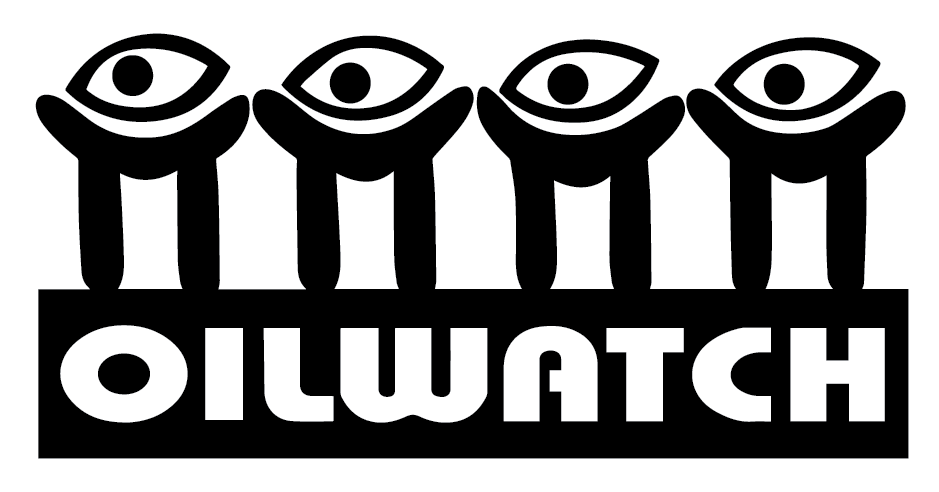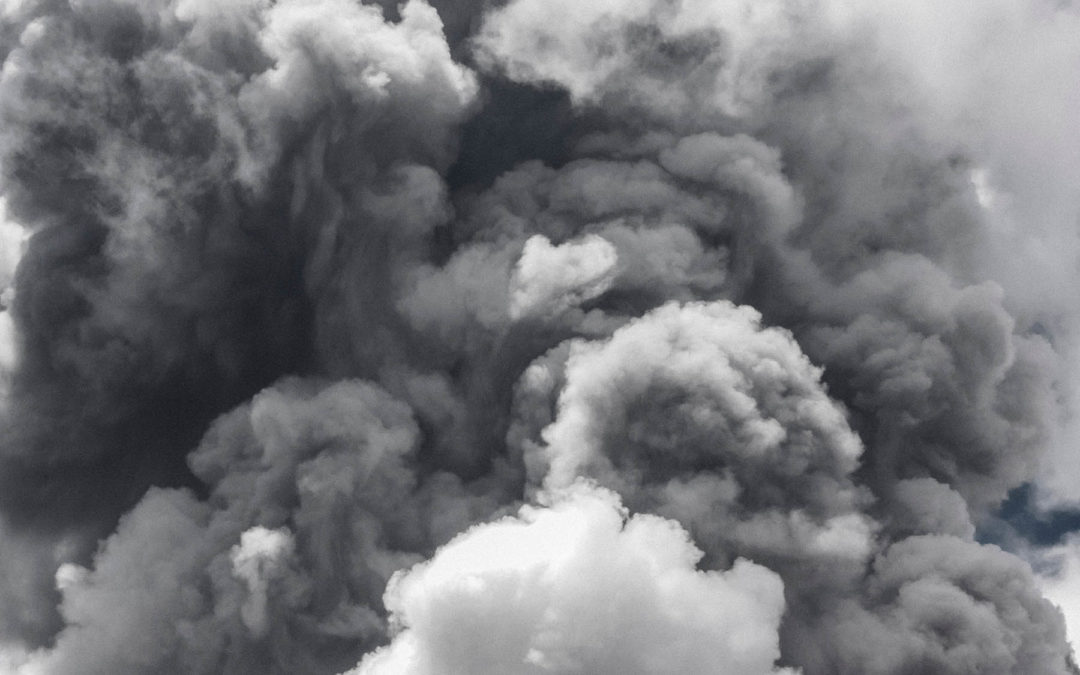We can’t breathe – Africa chokes on COVID-19 and fossil fuel flames
Preamble:
On the 10th of August 2020, Oilwatch Africa, held a virtual Annual General Meeting (AGM), with the theme- We can’t breathe – Africa Choking on COVID and Fossil flames. The AGM was attended by 32 participants from 11 African countries, including Nigeria, Togo, Swaziland, Mozambique, South Africa, Ghana, Kenya, DRC, Uganda, Cote d’Ivoire, Zimbabwe. The meeting surveyed the devastating impacts of fossil fuels on the continent, both through exploitation and combustion, punctuated this week by the oil spill off the shores of Mauritius, in a Japanese ship whose main purpose is taking iron ore from Brazil to China, in a world economy which already suffers a massive steel glut.
The world economy is just as chaotic as is our global political ecology. The crash of oil prices due to Russian-Saudi rivalries and lockdown demand compression, has offered a perverse opportunity for African governments to turn to neo-colonial international financial institutions for loans and financial aid, while leaving healthcare and social support systems in tatters.
And while citizens are restricted by the lockdown, fossil fuel companies have remained active at diverse crime scenes, piling up further ecological harms in their search for profits, to shore up shareholder confidence at a time they are also required to devalue their assets by the tens of billions of dollars, in keeping with accounting standards.
The crash of Big Oil confirms that fossil fuels are fast losing their relevance in relation to other commodity-based corporations, and COVID19 has clearly exposed how in future, we can all do with far less petroleum consumption.
We have always endorsed divestment from oil, coal, gas, and petrochemical companies, and this wisdom is confirmed as their assets now sell at massively discounted prices. These firms are taking unprecedented hits to their balance sheets, slashing dividend pay-outs for shareholders, and racking up debt to preserve a facade of stability. Even the petrochemical sector — hailed by industry leaders as a panacea for future growth — has been exposed for its unviable economic prospects. There is a general ruinous exposure of the entire fossil fuels ‘global value chain,’ now better described as a devaluation chain.
We who have been victimised by fossil fuel devaluation of our lives and prospects – at sites of extraction, in pipeline construction and operations, in refining, in shipping, in combustion, in disposal and in the most climate-vulnerable parts of the world – welcome the economic pain felt by investors who did not heed our warning and divestment demands. We told you so – that the laws of nature create reckonings you have no idea when and where and how deep the pain will affect you in the Global North, not just us in Africa.
In short, while Oilwatch Africa participants understand that the pandemic can be partially contained through lockdowns, the unfolding climate catastrophe will precipitate a devastating knockdown on the continent, and everywhere on earth.
There is therefore an urgent need for Africa to view the fossil fuel sector with scepticism, hostility and a willingness to promote its shutdown. The retrogressive economies, deepening inequalities and irresponsible exploitation of our peoples and environments must now decisively end, before any further damage is done.
Observations:
During presentations and deliberations, it was observed that:
- The extractivist pathways are entrenched as a mechanism for colonial, neocolonial and neoliberal plunder and the worsening of our continent’s overall dependency through “unequal ecological exchange” with the major economic powers.
- We need to change our leaders’ belief in commodity market revival – including of fossil fuels – because we insist we should no longer be dependent upon such export earnings, especially when seen as a means of recovery from COVID-19. Such belief has failed everyone in Africa who has lived or worked in the zones of extraction.
- There is an urgent need for a united Africa empowered with information to tackle the menace of fossil fuel extraction across Africa. We need to calculate the vast “ecological debt” that the fossil fuel producers owe us, including multinational corporations active across Africa. In South Africa’s case alone, as the world’s third most carbon-intensive economy per capita (behind only Kazakhstan and the Czech Republic), the two unprecedented cyclones and a rain bomb did unprecedented damage to Mozambique, Malawi, and Zimbabwe in March-May 2019, as well as to its own KwaZulu-Natal coastline around Durban. Avoiding the consequences of fossil fuels, as well as the inevitable pollution flowing from oil and gas leaks –as has become synonymous with the Niger Delta and as is now unfolding due to a ship’s leak of 4000 tons of bunker fuel in Mauritius – will occupy Oilwatch Africa into the future, given how desperate African elites are to still do deals with the corporations that threaten our very future.
- We join in solidarity with all those suffering the implications of oil, such as hungry food producers in the Horn of Africa, as billions of locusts swarm in to eat their grains, thanks to the proximity of excessively wet weather caused by climate change. We salute the Mauritian eco-socialist movement Rezistans ek Alternativ, as they both provide urgent material support to contain the spill – using sugarcane husks wrapped tightly within plastic as oil booms – and demand state and corporate accountability. They tell us all, that “We are proud that a new Mauritius is emerging that is putting nature and life at the centre,” and we vow to follow their lead.
Demands
At the end of the one-day virtual Oilwatch Africa AGM the participants demanded:
- African governments should finally recognise not the hucksters of a ‘global value chain’ in oil, but instead the global devaluation of life due to fossil fuels addictions. We insist they turn the continent from any ruinous pathways that lead to a global petroleum value chain, and instead work with us to hasten the demise of these firms and the replacement of leaders who are their African collaborators.
- Corporations and states should totally halt all new and existing fossil fuels exploration and extractive sites/activities across Africa and remove the knee of the extractive industries from the neck of Africa, to give her a chance to breathe.
- African governments should establish climate-resilient and just recovery models, to defend communities, stop destructive extraction and support agroecology, through their leading visionary organisations in civil society.
- The COVID19 Pandemic should not be used as a yardstick to dispense with workers, to oppress citizens, or to victimise activists across Africa.
- Government should not use the COVID-19 pandemic as an opportunity to pass developments, that will negatively affect the environment and impact upon community’s health and well-being, without proper and meaningful popular consultation.
- Government should not lower environmental standards, suspend environmental monitoring requirements or reduce environmental enforcement as part of response measures to the COVID-19 pandemic.
- African governments should support Annex Zero, by recognising and incentivising countries, nations, subnational spaces, localities, and territories that keep fossil fuels in the ground. We need to pressure the Global North to pay its climate debt, one aspect of this is our societies’ willingness to leave fossil fuels underground. A down payment on the Global North’s ecological debt to Africa is long overdue, and within this category we include the greenhouse-gas over consumers of South Africa, other the BRICS countries, and other emerging markets.
- Annex Zero communities should be supported with series of international incentives and recognitions based on solidarity, relevant technological exchanges, and the payment of an ecological debt associated with their suffering due to climate crisis. We think such communities could be paid properly following two models: the proposed “Yasuni” strategy of Northern governments paying the Ecuadoran government money to leave fossil fuels underground, which they would convert to more generous social programmes; and the Basic Income Grant successfully piloted in Otjivero, Namibia, which gives individual households in climate-sensitive sites a monthly cash grant to improve their lives and fend off the damage done by Global-North polluters.
- Africans should resist all forms of neoliberal capitalism that deepen the extractive-export model in the Global South, causing unequal ecological exchange and in the process causing the displacement of millions, destruction of the environment, new dependencies, and recolonization.
- Africans should promote accountability for the carnage, deaths and ecocide across Africa, especially that due to worsening climate chaos.
- The impact of COVID-19 on the health and livelihoods of countries already adversely affected by fossil fuels exploitation should be assessed. In such sites, it is clear that communities made vulnerable by such industries – for example when people near refineries or oil wells suffer asthma – are also more susceptible to COVID-19. And during national lockdowns, these communities are also more vulnerable than others. When local industries return to post-lockdown operations, the damages associated with pollution due to restarting wells and refineries is even greater than normal.
- A just transitioning away from fossil fuels and equitably phasing out coal, oil and gas extraction should be a fundamental part of the plan for African nations’ economic recovery from COVID19 Pandemic.
Finally, we salute activists fighting fossil fuels in all their manifestations. The protest rates in African countries have been at historic post-colonial highs since early 2011, the North African uprising. There has been no break in the action, as Africa’s popular movements have demanded more democratic leadership, accountability and transparency, less austerity, less extractivism, an end to femicide and ethnic battles, and a shift to ecological sustainability. The first weeks of COVID-19 dented our ability to protest injustice, but we have banged out the dents and are revitalising our popular movements. These movements are not as narrow as they were during the struggle against 1950s-90s colonialism, against 1980s-90s dictators imposing structural adjustment, and against ‘resource-cursed’ elites ever since.
We now know we owe our continent a chance to heal the terrible state of economy-society-nature relations, so that COVID-19 and other zoonotic diseases will cease, so that local ecologies recover, and so that climate catastrophe can be averted. We know we have consensus for these values from the rest of the continent, aside from a few corrupted souls. And we know we can and will prevail in bringing our beloved Africa to the necessary post-fossil phase of our individual and collective lives – but only with your guidance and involvement, dear African citizens.
If we fail, then Black Lives Matter in the USA and Europe, but not in Africa?
Signed
Africa Coal Network
JVE, Cote d’Ivoire
Oilwatch Ghana, Ghana
Friends of Lake Turkana, Kenya
Justiça Ambiental, Mozambique
Green Alliance of Nigeria, Nigeria
Health of Mother Earth Foundation, Nigeria
Kabetkache Women Development Resource Centre, Nigeria
We the People, Nigeria
Peace Point Development Foundation, Nigeria,
Policy Alert, Nigeria
Leke Development Foundation, Nigeria
Earthlife Africa, South Africa
South Durban Community Environmental Alliance, South Africa
Oil Change Africa, Swaziland
Les Amis de la Terre/Oilwatch, Togo
Africa Institute for Energy Governance, Uganda
National Association of Professional Environmentalists, Uganda
For more information reach:
- John Ngabirano – ngabiranojohn@gmail.com
- Cadmus Atake-Enade – cadmus@homef.org

